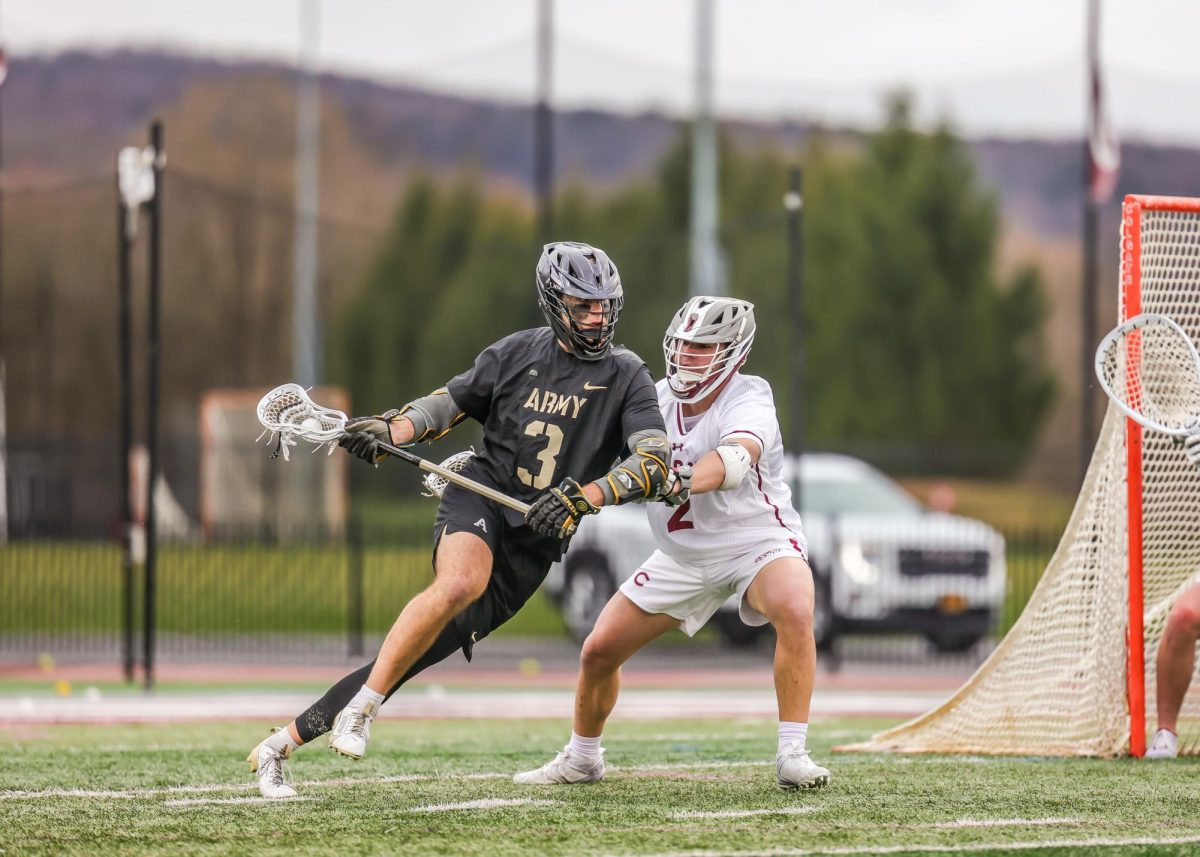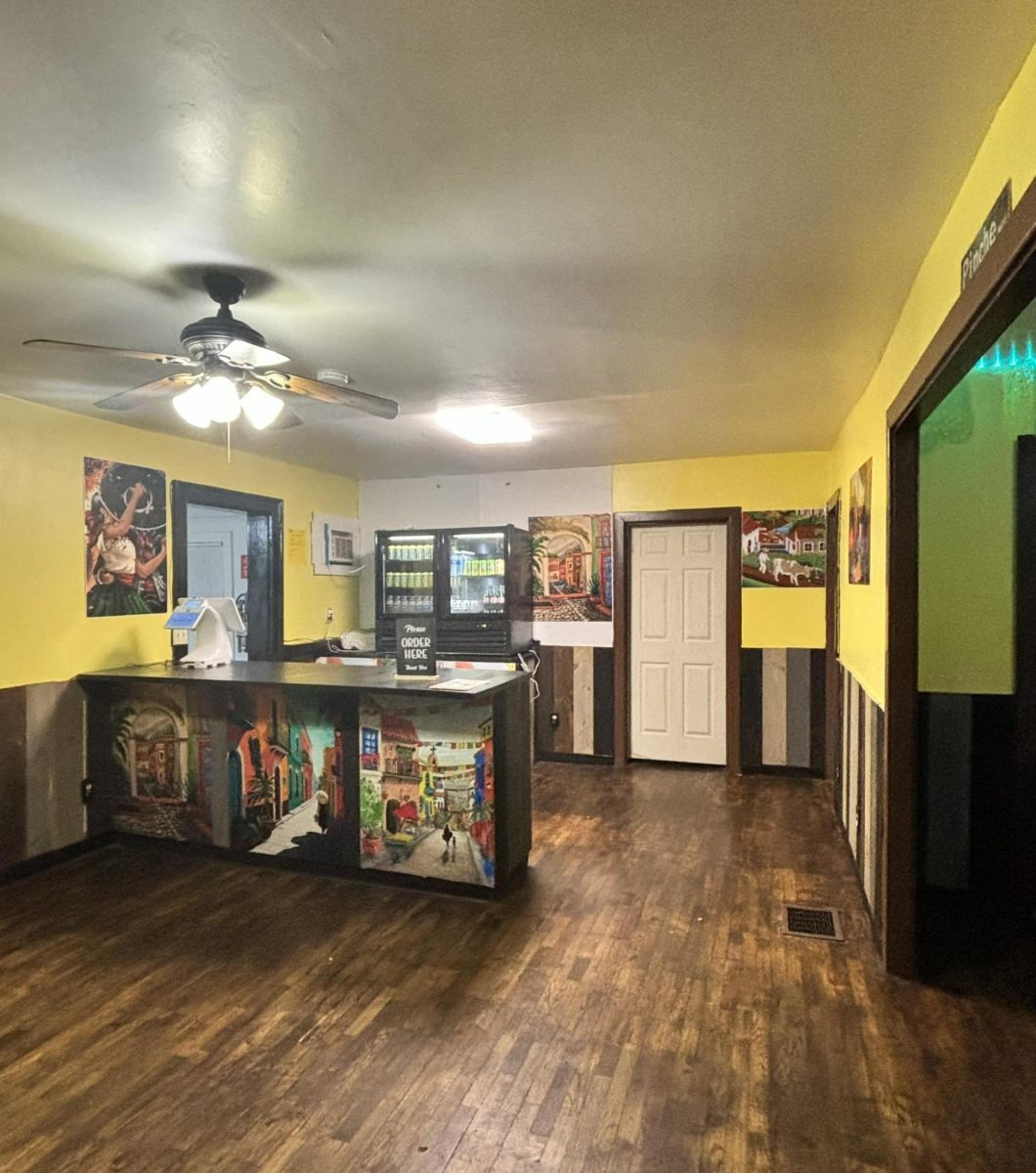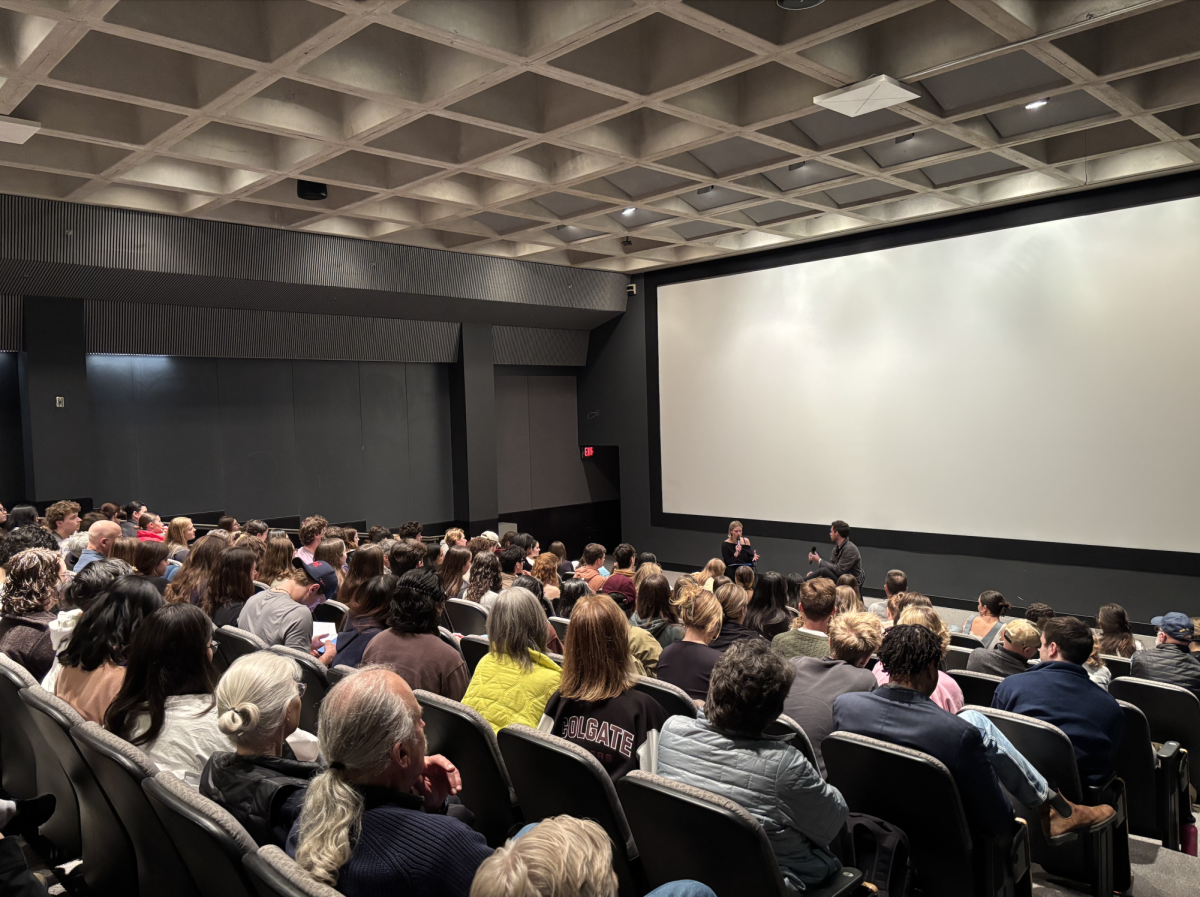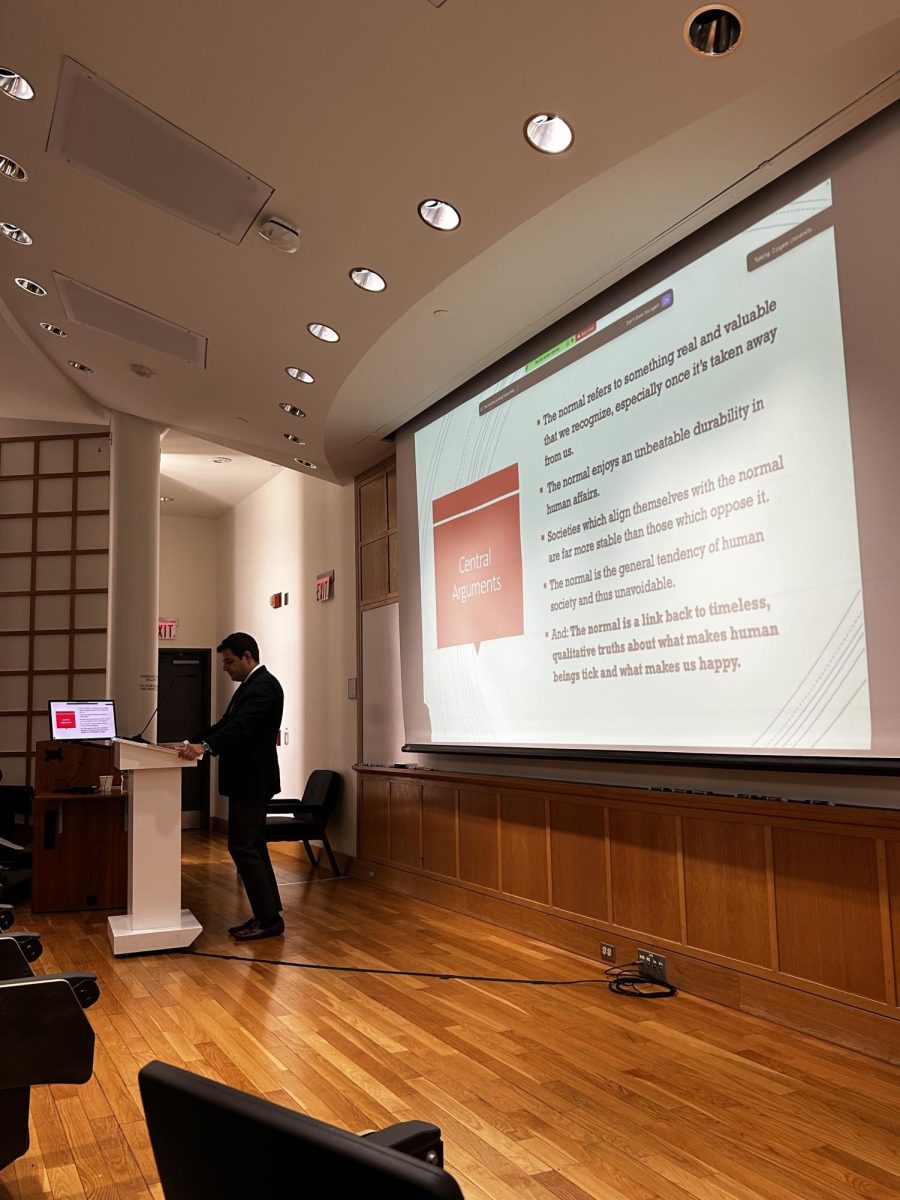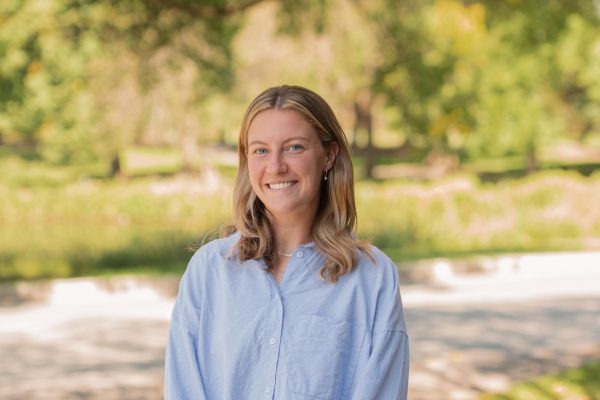Colgate University’s Africana, Latin, Asian and Native American (ALANA) Cultural Center and Office of the Dean of the College began their 2024 MLK Celebration on Thursday, Jan. 25, at an opening ceremony featuring keynote speaker Dr. Durryle Brooks. Brooks is the CEO and founder of Love and Justice Consulting, LLC, a firm providing leaders with educational opportunities in social justice and diversity. He is also known for his academic work addressing partner violence in the black LGBTQ community. Additional remarks were given by Esther Rosbrook, director of the ALANA Cultural Center. The opening ceremony also featured musical performances from the Mantiphondrakes, one of Colgate’s a cappella groups, and senior Blessed Jimoh.
The University’s annual MLK Celebration honors the legacy and life of civil rights leader Rev. Dr. Martin Luther King Jr. and lasts for a week following the opening ceremony.
“Each event presents a unique opportunity for us to engage, learn and grow together as changed agents,” Rosbrook said.
Brooks’ speech was centered around love. He discussed how King’s work was the core and foundation of his notion of love and how it can be used in social transformation. Although Brooks continually went back to King’s sermons on love, he pointed out that he often struggled to understand what King meant by “love,” eventually centering his academic work around trying to answer the question: “What is love?”
“What is love to the oppressed? What is love to the socially marginalized?” Brooks said. “What is love to the person who has been pushed to the margins of society, left out, exploited and manipulated?”
Brooks used these questions to try and re-conceptualize love in ways that he believes King intended us to. He noted that love is a core aspect of humans’ lived experiences and is necessary for our health and well-being. Because of this, Brooks argued that love has a lot to do with how we see the world and how social movements are organized, which is why studying love through a social lens was so important to him.
Brooks further detailed some of the dangers of love that he uncovered during his time at Johns Hopkins University. He described how, when working with black gay and bisexual young men, he noticed they began to normalize violence in their relationships because of their construction of love. To Brooks, this became an indicator that love may be advancing political projects relating to domination and control.
“I do believe love is political,” Brooks said. “[Because] it designates who matters and who is disposable. It structures desire and the conditions of our worthiness. And it actually determines the degree of which someone or something is willing to act on your behalf. So, in this sense, for me, love becomes a political project. Because inside of that you get to start engaging issues of racism and homophobia and white supremacy and patriarchy, because all of those get coated through and embedded in love.”
Through his research, Brooks developed an operational definition of love, which he noted in his speech as something that Dr. King may have agreed with.
“Love is a capacity that will encourage one to nourish and affirm oneself and another,” Brooks said. “In order for love to be radically transformative, it would necessarily have to help us resist erasure into humanization. It would actually have to help us facilitate not only our own [healing] but the healings of others. If love is going to be critical […] it would actually have to begin to resource us in ways for us to not only find our individual and collective voice, but also find our community voice.”
First-year Bella Nalli attended the opening ceremony and was intrigued by Brooks’ analysis of love and oppression.
“I thought it was really interesting how he talked about love being able to fight oppression, because I feel like when a lot of people think of love, they think about really caring about someone else or caring for something. But he was talking about how it can lift other people up who are suffering from oppression,” Nalli said.
Rosbrook also remarked on the event’s turnout and success.
“I am delighted with the positive outcomes of the ceremony,” Rosbrook said. “The near-full attendance on the first floor of the University Chapel reflects high community engagement.”
Planned events during the annual MLK Celebration following the opening ceremony included a unity dinner, a day of service and a social justice summit.







